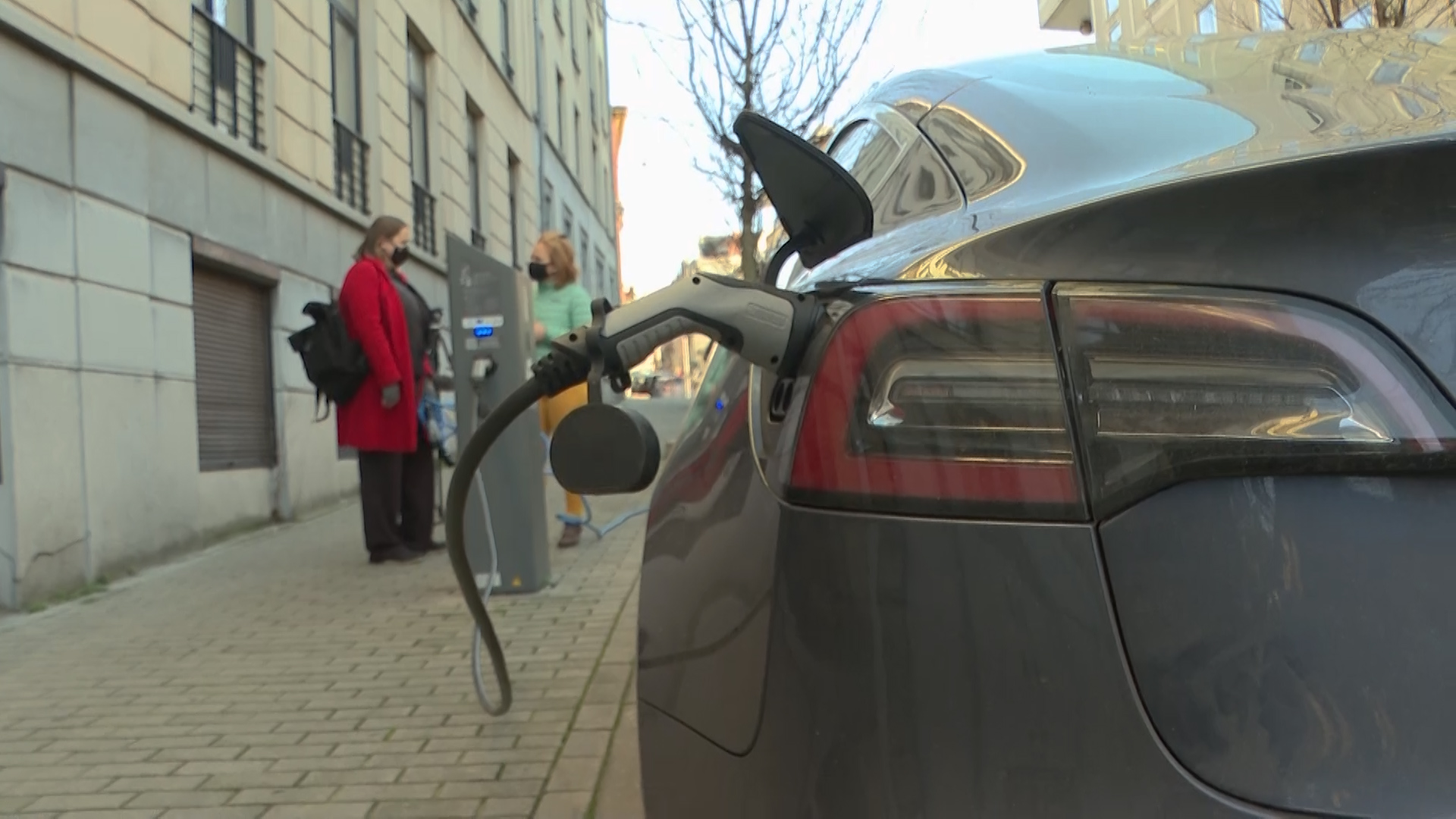02:36

It was mid-morning on a Friday when Kathryn Sheridan pulled her BMW 225xe into a parking spot just off Place Jourdan in Brussels.
"There aren't enough charging stations," she said as she hauled a long blue cord from her backseat.
She looked across the street, gazing at a familiar headache. One electric car charge point with two other vehicles already tethered to it.
"We want to change mobility more to electric but then we need the infrastructure," she said.
Luckily for Kathryn, her car is a plug-in hybrid so it can run on petrol if necessary. But as the founder of the consultancy firm Sustainability Consult, she's loath to do so.
Charge point scarcity is a problem across Europe. At the end of 2019, there was just one public charge point for every eight electric vehicles on the road in the EU, according to a report published by the environmental think-tank Transport & Environment.
That infrastructure is now set for a major jolt after the EU earmarked 30-percent of its $2.2 trillion coronavirus recovery fund and long-term budget for green initiatives, including a massive rollout of charging stations.

Renovating buildings to make them more energy efficient is part of Europe's plan to a greener future.
Renovating buildings to make them more energy efficient is part of Europe's plan to a greener future.
The unlikely beneficiary of the coronavirus pandemic
Coronavirus has pushed Europe to the pandemic cliff edge. More than 300,000 Europeans have lost their lives to COVID-19 so far, millions have been left unemployed, and the bloc has been plunged into the deepest recession in history.
The euro area economy is forecast to contract by 7.8 percent in 2020, before rebounding 4.2 percent in 2021.
For Brussels' top brass, the $918 billion recovery fund - dubbed Next Generation EU - is about much more than just a post-pandemic recovery. It's about charting Europe's path to the future.
"Next Generation EU can lead to the most ambitious overhaul of the European economy in decades. It will drive our green and jobs recovery, it will be investing in everything from renewables to renovations to restoring our nature," European Commission President Ursula von der Leyen told MEPs in December.
The spending package also sets aside billions of dollars to kickstart a digital transformation, investing in better connectivity and cutting edge technologies like AI. And for the first time, the EU will borrow on international markets on a massive scale, then give billions of it away as grants.
"The real value of the recovery fund is a political one and not just an economic one," said Pawel Zerka, Policy Fellow at the European Council on Foreign Relations. "But of course there are important challenges. The fund itself will not be enough to suddenly make Switzerland out of Italy here. Or help Greece cope with all of its structural challenges."
The money will start flowing in mid-2021 and experts say oversight will be key to ensuring the money is optimally spent and not wasted or put towards projects that impede the EU's long term goals.
That's also a concern for Kathryn Sheridan who worries some of the funding will find its projects which claim to be greener than they really are.
"We've already seen plans to fund gas projects, for example, and that's not where we need to be going to transition into more sustainability," she said. "We need to stay consistent, stay ambitious, and take everyone along with us."

